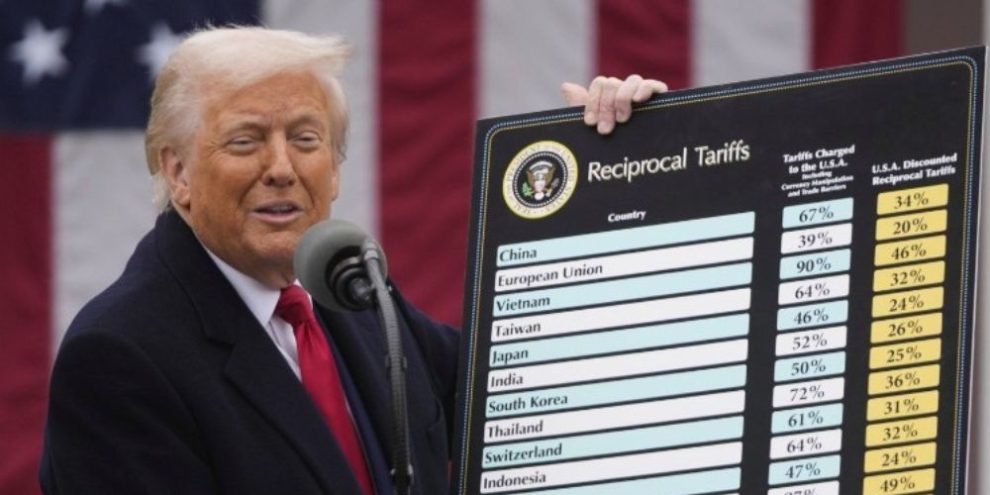
New Delhi: Led by Japan, Asian markets opened lower on Thursday, after US President Donald Trump announced reciprocal tariffs on several countries — with 34 per cent tariffs being levied on China, 46 per cent on Vietnam, 26 per cent on India, 26 per cent on South Korea and 24 per cent on Japanese goods. Japan’s Nikkei 225 fell by nearly 3.5 per cent and the broader Topix index was down 3.32 per cent.
In Hong Kong, the Hang Seng Index fell 2.43 per cent, whereas mainland China’s Shanghai Composite Index fell 0.91 per cent. The new reciprocal rate on China will be added to existing tariffs, totalling 20 per cent, meaning the true tariff rate is 54 per cent on Chinese goods. In South Korea, the Kospi index fell 1.29 per cent, paring losses from over 3 per cent. Australia’s S&P/ASX 200 was down 1.17 per cent in the early trade.
Gold prices hit a record high and were trading at $3,153.92 per ounce. The Indian stock markets were yet to open. In the US, the S&P 500 advanced 0.67 per cent to close at 5,670.97, while the Nasdaq Composite added 0.87 per cent and ended at 17,601.05. The 30-stock Dow Jones Industrial Average added 235.36 points to close at 42,225.32. Shares of Elon Musk-run Tesla climbed 5.3 per cent. Earlier, Trump announced a baseline rate of 10 per cent on all imports and higher individualised rates for dozens of countries.
The levies are half of what the US deemed the trading partner countries imposed on goods from America, a combined total of tariffs and non-monetary barriers. Trump said the lower rates are because Americans are “kind” people. The Indian levy on imports from the US — as calculated by the US in this instance — follows a formula that includes both monetary and non-monetary levies and barriers. The new American levy on imports from India was put at half, 26 per cent.
